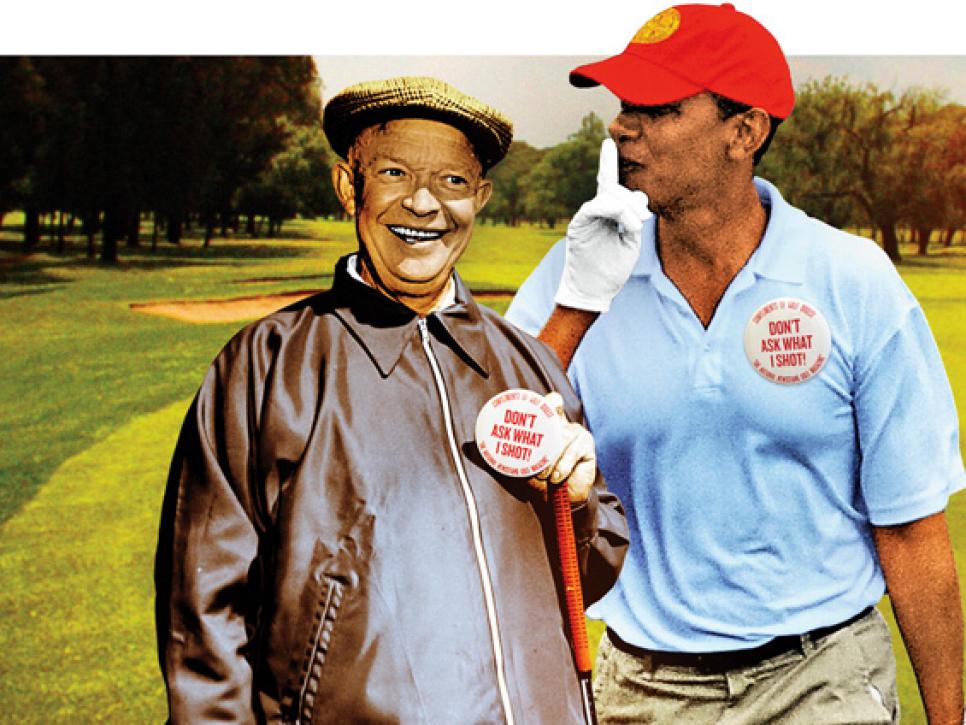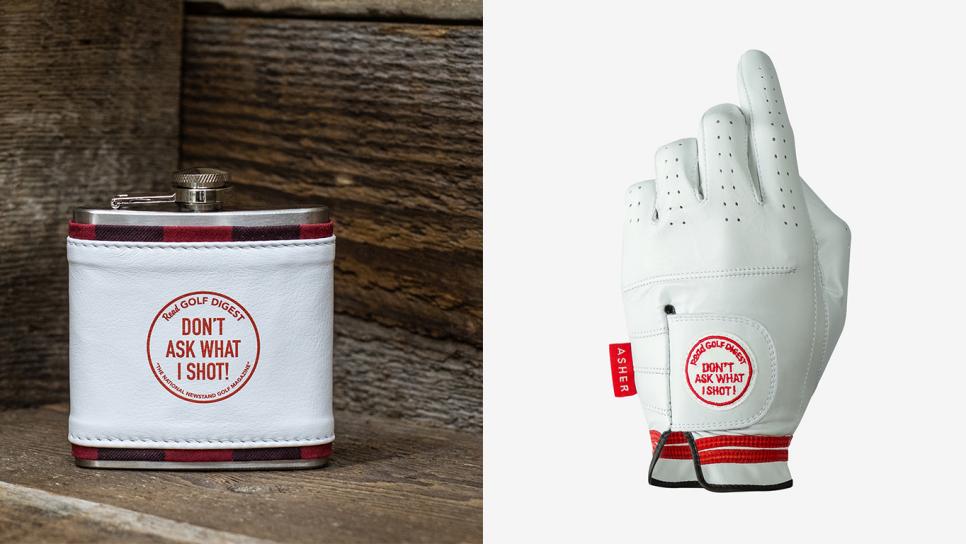Don't Ask What I Shot!

A bumper sticker during Dwight Eisenhower's second presidential campaign, in 1956, said: "BEN HOGAN FOR PRESIDENT. IF WE'RE GOING TO HAVE A GOLFER, LET'S HAVE A GOOD ONE." Eisenhower was a yipper and a short hitter—he had injured his left knee playing football at West Point and had trouble following through—but he was deeply addicted. He had a practice green installed on the White House lawn in 1954, and he left a trail of spike marks on the floor of the Oval Office, as John F. Kennedy (the best golfer ever to be president) discovered when he moved in.
Wherever Ike played, he believed in executive privilege. "There ought to be a law against asking a person what he shot," he said in 1953, after a trip to Augusta National. (He'd been a member since 1948.) Golf Digest responded by sending him lapel buttons that said "DON'T ASK WHAT I SHOT!" and by making him Member No. 1 of the Secret Shooters' Society for the Suppression and Silencing of Scores. Eisenhower gave buttons to Bob Hope and Sen. Robert Taft, among other golf buddies, and the magazine mailed thousands to readers who also wanted in.

Not everyone takes a lighthearted view of golf-playing presidents. Mitt Romney, campaigning for the White House in 2011, said he thought the country needed "a president whose idea of being 'hands on' doesn't mean getting a better grip on the golf club." Few people who have actually been president during the past century or so have shared his disdain. In September, George W. Bush told Jimmy Roberts, on the Golf Channel, that Barack Obama shouldn't be criticized for playing golf. "I know the pressures of the job," he said, "and to be able to get outside and play golf with some of your pals is important for the president. It does give you an outlet."
Eisenhower would have agreed. In his memoir Mandate for Change, he discussed the friends he had made at Augusta National. "It is almost impossible for me to describe how valuable their friendship was to me," he wrote. "Any person enjoys his or her friends; a president needs them, perhaps more intensely at times than anything else." Golf fills a player's entire mental space, leaving no room for off-course anxieties. I can lie awake brooding about my car's need for an oil change; what must nights be like for people who have the power to decide the fate of nations? Golf is exactly what a president needs—and the more of it the better.
Richard Nixon took up golf while serving as Eisenhower's vice president, in the hope of improving his relationship with his boss, and he once asked Clifford Roberts, Augusta National's chairman and co-founder, about becoming a member. Roberts said, "I didn't know you were that interested in golf"—and that was the end of that. Roberts' drop-dead response is understandable, at least in retrospect, but it's impossible not to wonder about its impact on history. What if Nixon had spent more time hanging around Amen Corner and less time scheming with G. Gordon Liddy?

